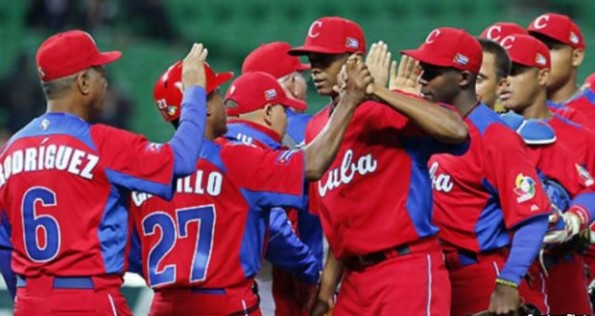 Now we know why the national baseball season didn’t start in October. The delay was not due to the rains, as reported by the sports authorities.
Now we know why the national baseball season didn’t start in October. The delay was not due to the rains, as reported by the sports authorities.
The plot was different. Technocrats and political mandarins put the finishing touches on a project that would allow better wages for athletes. The new rules will apply starting November 3rd, when the winter baseball season begins.
It was imperative to change the concepts governing sports in Cuba. After Fidel Castro abolished professional sports in 1961, a pyramid of schools and training centers was created to fashion high-performance athletes.
Funded by a deposit of rubles, material resources, and coaches from the now-vanished USSR and other Eastern European nations, the sports movement in Cuba experienced a spectacular increase in quality.
The island was always a pool of talent in baseball and boxing. But after 1959, sports that were exotic to Cuban fans, such as water polo, handball, Greco-Roman wrestling, or judo – thanks to coaches who arrived from the cold or from the thug state of North Korea – made it possible for Cuba to win Olympic, PanAmerican, and World medals in those disciplines.
Others like basketball or volleyball, greatly accepted in the university and school setting, took off dramatically. Like the litter of communist countries with the USSR at the head, Cuba used sport as a showcase trying to prove the superiority of the Marxist-Leninist system over modern Western capitalism.
There were plenty of champions. They came in series, like sausages, from the sports schools. Beef was missing and misery was socialized, but the average Cuban was proud of their achievements in sports.
They labeled the entire feat with the term ”amateurs.” Something that was false. By amateurs only they had a salary. They played, trained, and competed throughout the year just as their professional counterparts.
But they earned workers’ wages. With the arrival in 1990 of the “special period,” a static economic crisis lasting 23 years, sports took a nose dive. The propaganda bubble burst, in which Fidel Castro saw the athletes as warriors and the competitions as battlefields.
Low wages – an athlete earned a salary according to his or her profession – was the key to nearly a thousand athletes leaving their homeland, from 1991 to now.
To this was added the stupid policies that prohibited athletes from playing on professional teams and managing their finances without official authorization. The six-figure salaries that some Cuban ball players earn in the Major Leagues was and remains an incentive for young talents who want to try their luck in the best baseball in the world.
The bleeding had to be stopped. The new regulations can certainly reduce the desertions in sports like volleyball and others, where the main circuits are in Europe and are not affected by the laws of the U.S. embargo, and the athletes don’t have to defect from Cuba in order to compete.
But it remains to be seen whether the signing of athletes will be handled by a representative designated by the player or by the state enterprise Cubadeportes, charging very high fees.
Either way, it is a leap forward. A first step. A positive one, if we see that 70% of elite athletes live in poverty.
It is good that a player earns a salary in line with the cost of living in Cuba. They contribute to the major national entertainment for five months of the year. Doctors, teachers, and other professionals, should be similarly compensated, but that’s another story.
The new regulations do not say how training conditions will be improved, stadiums will be repaired, or athletes will be provided with a balanced diet.
Neither do they explain how the whole new salary framework of the National Series will be funded. Will they create companies that see the sport as a business or will the state continue to subsidize the sport?
It is already a fact that the regime of General Raul Castro has buried a hundred meters underground the “amateur sports” falsehood. It was logical. It constituted a burden on the impoverished local economy.
These new measures also send a message to the magnates of the Major Leagues in the United States: Cuba wants to participate in the Big Show. They have now opened the gate.
Iván García
Photo: Taken from Martí Noticias
Translated by Tomás A.
1 October 2013
